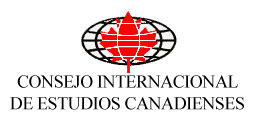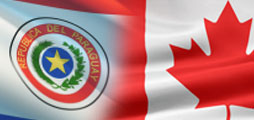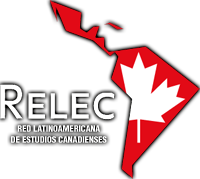VIDEOS Congreso
07/09/2011
Katherine LundyKathleen Gould Lundy is Coordinator of Destination Arts at York University. She has extensive experience working in literacy, equity and arts education in inner-city schools in various school boards throughout Canada. She was a teacher, consultant and coordinator for over 30 years in the Toronto District School Board where she became interested in ways that inventive, inclusive teaching could impact student achievement especially amongst those students who were most at risk. Kathy regularly works with teachers and administrators who are intent on bringing marginalized students into the mainstream.
Cracking the Code: Inventive, Interactive Strategies to help Students find the Meaning behind the Words
This workshop will focus on the meaningful, serious business of play in digital game environments. Following a brief lecture, participants will be invited to assemble into small groups to collaborate on the development of an educational game idea, and will be invited to ‘storyboard’ that idea, pitching their educational game design to other workshop participants. Dr. Jenson will facilitate a discussion on the opportunities and challenges of doing this kind of work.
In this workshop, Kathy will share proven methods for creating respectful classroom communities where students become intrigued and then inspired to find the underlying meanings in challenging texts. Kathy will talk about her literacy work with disadvantaged youth and discouraged readers and writers who have difficulty finding “the meaning behind the words.”. In this workshop, teachers will learn how to actively engage their students in literacy learning by having them:
• visualize situations, relationships and characters;
• entertain various points of view in discussions;
• wonder about the meaning behind the words;
• project their voices in Readers Theatre;
• embody texts through movement;
• solve interesting problems collaboratively, and
• talk themselves into understanding.
He is co-founder and co-president (1985), with Ginette Major, of La Cité des arts et des nouvelles technologies de Montréal and president of the Science Pour Tous (a network of Quebec's science et technology institutions)of the International Federation of Multimedia Associations.
¬Ý
Jennifer Rowsell— Brock University
Jennifer Rowsell is a Canada Research Chair in Multiliteracies at Brock University in Canada. She has written and co-written books, chapters, and articles on Multimodality, New Literacy Studies, and Multiliteracies. Her current research focuses on Visual Communication in Communities; Modal Learning; and Applying Design Epistemologies in High School Classrooms.
Doing multimodality: Voices from the Field
The presentation will feature two research studies that offer a framework for teaching ‘21st century skills’ in contemporary classrooms. One research study prompts us to think about what experts in digital media, technology, and other professional design fields think about and do when they innovate. The other research study explores how 20 secondary school students apply design principles in their grade eleven English class. Together, the research studies offer educators and teacher educators new ways of thinking about teaching students based on new literacy practices, thinking systems, and concepts that will contribute to more contemporary learning. Understanding ‘21st century thinking’ involves stepping outside of what we know in education and incorporating new frameworks and new practices. Whether an individual is using a mobile communication device or contributing to a social networking site, the skills that we use to communicate out in the world are fundamentally different from how literacy is taught in-school.
Jennifer Jenson
¬ÝJennifer Jenson is Associate Professor of Pedagogy and Technology in the Faculty of Education at York University. She is currently co-editor of Loading‚Ķ: The Journal of the Canadian Game Studies Association and president of the Canadian Game Studies Association. Working with Suzanne de Castell (Simon Fraser University) and a team of students, she has co-designing an educational game, ‚ÄúContagion‚Äù and is currently working on two new games, ‚ÄúEpidemic: Self-Care for Crisis‚Äù and a Baroque music game. She has just completed a 3-year study of gender and digital gameplay, and has begun another on novice players and new game controllers. ¬ÝShe has published widely on education, technology, gender, design and development of digital games, and technology policy.
Designing Play in Digital Games Workshop
In recent years, accessible, web-based tools have allowed users to participate directly in the production of online content. These ‚ÄòWeb 2.0‚Äô tools enable users to author, publish and edit material in textual, audio, visual, multimodal and interactive formats, and have the potential to re-position students as not simply ‚Äòconsumers‚Äô of curricular, but as ‚Äòproducers‚Äô ‚Äì of animations, news reports, public service announcements, educational video games, blogs and ‚Äòvlogs‚Äô and so on. Many also argue that the skills engendered through these technologies are central to both citizenship and work in today‚Äôs society.¬Ý
The challenges, however, are how to incorporate these tools into teaching in ways that are pedagogically meaningful, that enrich rather than distract or disrupt educators’ practice, and that ensure all students can take part in the skills and competencies that these digital technologies can afford.














